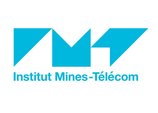Atmospheric Research Infrastructures: Sharing the future of our atmosphere
- Durée : 2 semaines
- Effort : 5 heures
- Rythme: ~2h30/semaine
- Langues: Anglais
Ce que vous allez apprendre
À la fin de ce cours, vous saurez :
By the end of the course, you will be able to:
- assess the role and interest of atmospheric research,
- describe different means of monitoring the atmosphere,
- summarize the goals and framework of three Research Infrastructures (RIs): ACTRIS, IAGOS and ICOS,
- explain the workflow of an atmospheric RI.
Description
Air pollution and climate change are two interconnected issues that have become major global concerns. They have an undeniable impact on our health, environment, society and economy. This naturally raises some questions: How do we measure air pollution? How do we monitor climate change? And most importantly, how do we address these issues? The MOOC ‘Atmospheric Research Infrastructures: Sharing the future of our atmosphere’ focuses on cutting-edge research in atmospheric science.
During this course, you will discover how atmospheric Research Infrastructures (RIs) support high-level research and inform political decisions for the benefit of society.
In the first week, you will learn about atmospheric constituents, their sources and impacts, and their complex interactions. You will understand the importance of sharing data and building robust networks between research communities.
During the second week, you will explore different ways to monitor the atmosphere through 3 RIs: ACTRIS, the Aerosol, Clouds and Trace Gases Research Infrastructure; IAGOS, the In-service Aircraft for a Global Observing System; and ICOS, the Integrated Carbon Observation System.
Format
This MOOC takes place over 2 weeks with a commitment of about 2 hours per week. However, depending on your own interests and availability, you can choose to follow only the essential parts of the MOOC or go more in-depth by studying the additional materials. Finally, some validation questions are proposed after each section. To allow self-delivery of the material, the quizzes are proposed as multiple-choice questionnaires, which enable full automation of the test administration and open badge process.
Prérequis
Undergraduate level in science. Basic level in general chemistry.
Evaluation et Certification
Quizzes will be given at the end of each section and each week to test your knowledge and practical skills. The final assessment consists of 15 multiple-choice questions. These questions ensure that the workflow and the concept of atmospheric research and monitoring have been acquired. A free badge will be delivered to learners who complete the course and quizzes successfully, with 67% of correct answers at the final quiz.
Accessibilité
English. Subtitles are available in English, French, Greek, Portuguese, Spanish, and German.
Plan de cours
- Part 1: Air pollution vs. Climate change
- Part 2: Aerosols and Clouds
- Part 3: Trace gases and Greenhouse gases
- Part 4: Atmospheric Research Infrastructures
- Part 1: ACTRIS (Aerosol, Clouds and Trace Gases Research Infrastructure)
- Part 2: IAGOS (In-service Aircraft for a Global Observing System)
- Part 3: ICOS (Integrated Carbon Observation System)
- Part 4: The workflow and benefits of a coordinated approach
Équipe pédagogique
Véronique Riffault
Catégories
Antonia Zogka
Catégories
Stéphane Sauvage
Catégories
Therese Salameh
Catégories
Joel Ferreira de Brito
Catégories
Établissements
Licence
Licence pour le contenu du cours

Attribution - Pas d’Utilisation Commerciale
Vous êtes autorisé à :
- Partager — copier, distribuer et communiquer le matériel par tous moyens et sous tous formats
- Adapter — remixer, transformer et créer à partir du matériel
Selon les conditions suivantes :
- Attribution — Vous devez créditer l'oeuvre, intégrer un lien vers la licence et indiquer si des modifications ont été effectuées à l'oeuvre. Vous devez indiquer ces informations par tous les moyens raisonnables, sans toutefois suggérer que l'offrant vous soutient ou soutient la façon dont vous avez utilisé son oeuvre.
- Pas d’Utilisation Commerciale — Vous n'êtes pas autorisé à faire un usage commercial de cette oeuvre, tout ou partie du matériel la composant.
Licence pour le contenu créé par les participants du cours

Attribution - Pas d’Utilisation Commerciale
Vous êtes autorisé à :
- Partager — copier, distribuer et communiquer le matériel par tous moyens et sous tous formats
- Adapter — remixer, transformer et créer à partir du matériel
Selon les conditions suivantes :
- Attribution — Vous devez créditer l'oeuvre, intégrer un lien vers la licence et indiquer si des modifications ont été effectuées à l'oeuvre. Vous devez indiquer ces informations par tous les moyens raisonnables, sans toutefois suggérer que l'offrant vous soutient ou soutient la façon dont vous avez utilisé son oeuvre.
- Pas d’Utilisation Commerciale — Vous n'êtes pas autorisé à faire un usage commercial de cette oeuvre, tout ou partie du matériel la composant.






